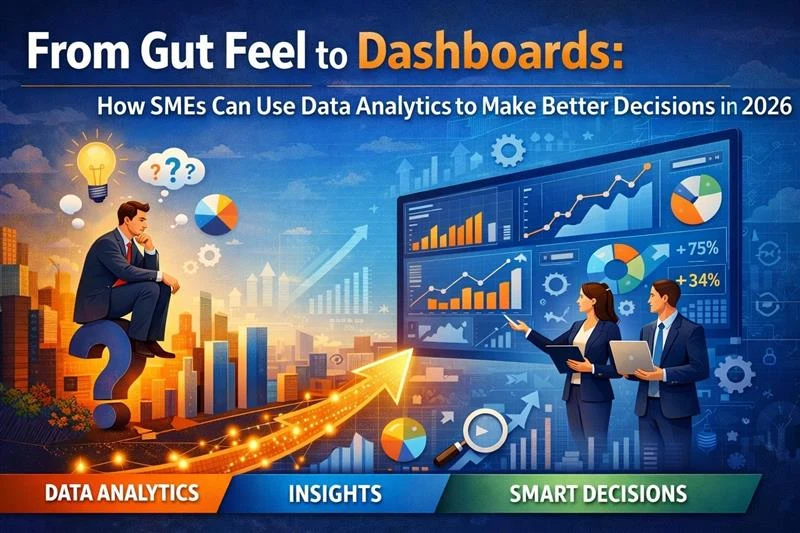Your Ultimate FAQ Guide
27 May 2024What Technology Is Used To Develop Mobile Applications?
There are numerous choices of technology, it all depends on app requirements, target platforms, development resources, and performance considerations. The main types of technology are-
- Native Development: The technology used to develop mobile applications is dependent on the platform. For example, iPhone apps are usually done using the language Swift or Objective-C. However, Android apps use Java and Kotlin. The IDE, which are applications that help develop code efficiently, is also different. For example, the iPhone uses Apple's Xcode IDE whereas Android uses Android Studio IDE.
- Cross-Platform Frameworks: Applications that can be used to write code for numerous platforms (for example both iPhone apps and Android apps can use it). These applications use the languages HTML, CSS, and JavaScript. An example developed by Facebook is React Native. An easier way to develop and maintain apps is through Hybrid App Development, however, these don’t provide the same level of performance as native apps.
- Progressive Web Apps: Applications can be accessed through a web browser but offer an app-like experience. However, they have limitations in terms of accessing certain device features.
Should I Create A Web Application Or a Mobile Application?
Choosing between web applications and mobile applications depends on the app's requirements and target audience.
Times When Mobile Applications Are Recommended
- If the target audience mainly uses mobiles or if there are a lot of user interactions.
- If the application heavily relies on features such as camera, GPS, push notifications, and accelerometer.
- If you distribute your application through app stores (such as the Apple App Store).
Times When Web Applications Are Recommended
- If you are limited on time when developing an application.
- If you have a low budget.
- If there are many updates that need to be made to the application in the future.
Which Software Is Used In Healthcare?
There are various software applications used to support different aspects of healthcare delivery, management, and administration-
- Electronic Health Record Systems: Securely store and manage patient information.
- Hospital Information Systems: Handle tasks like patient registration, scheduling, billing, and inventory management.
- Picture Archiving and Communication Systems: Store and share medical images.
- Laboratory Information Systems: Manages lab workflows, testing, and reporting.
- Clinical Decision Support Systems: Provide evidence-based guidelines and patient data for clinical decision-making.
- Telehealth and Telemedicine Platforms: Facilitate remote consultations, virtual visits, and patient monitoring.
- Practice Management Systems: Assist with appointment scheduling, billing, and administrative tasks.
- Health Information Exchange Systems: Securely share patient health records between healthcare providers.
What Is The Role Of Software In Healthcare?
Software enhances patient care, streamlining workflows, and ensuring efficient management. Key roles of software in healthcare include-
- Digital Health Records: Systems manage patient records, enhancing accuracy.
- Efficient Workflows: Software streamlines processes, reducing administrative burdens and enabling focus on patient care.
- Decision Support: Systems provide evidence-based guidelines and patient-specific data to assist in accurate clinical decision-making.
- Remote Care: Software enables remote patient monitoring and telehealth services, improving access to healthcare and enabling virtual consultations.
- Imaging: Software stores, retrieves, and shares medical images for diagnostics.
- Practice Management: Software supports tasks like scheduling and billing.
- Health Analytics: Software analyzes data for insights to support population health and personalized medicine.
- Patient Engagement: Software empowers patients through portals, apps, and wearables, facilitating access and interaction.
- Compliance and Security: Software ensures regulatory adherence, protecting patient privacy and data security.
What Software Is Used To Run A Medical Store?
Few of the software used within a medical store are as follows:
- Pharmacy Management Systems (PMS): Inventory, prescription processing, billing.
- Point of Sale (POS) Systems: Sales transactions, inventory tracking.
- Inventory Management Software: Stock tracking, reordering, expiration monitoring.
- Prescription Management Software: Processing, tracking, label generation.
- Accounting Software: Financial records, expense tracking, invoicing.
- CRM Software: Customer profiles, purchase history, interactions.
Which Software Is Used In Education?
Learning Management Systems (LMS): LMS software provides a platform for managing and delivering educational courses and content. Student Information Systems (SIS): SIS software helps educational institutions manage student data, including enrollment, attendance, grades, and transcripts. Content Authoring Tools: Content authoring tools allow educators to create interactive and engaging digital learning materials. These tools enable the creation of multimedia presentations, quizzes, simulations, and e-learning courses. Virtual Classroom Software: Virtual classroom software facilitates online teaching and learning by providing features like screen sharing and chat. Educational Apps: Educational apps are designed to support learning on mobile devices. Assessment and Testing Tools: Assessment software allows educators to create and administer quizzes, tests, and exams digitally. Classroom Management Software: Classroom management software helps teachers organize and manage their classrooms, including attendance tracking, behavior management, and communication with students and parents.
What Is The Best Software To Run Your Coaching Institute?
Coaching Management Software: Software that offers features for managing various aspects of a coaching institute, including student management, course scheduling, attendance tracking, fee management, and performance analysis. Learning Management Systems (LMS): LMS platforms can deliver online courses, organize learning materials, conduct assessments, and track student progress. Online Class and Video Conferencing Software: Platforms like Zoom and Microsoft Teams provide features for conducting virtual classes, sharing screens, and interacting with students in real time. Communication and Collaboration Tools: Platforms like Slack offer features for messaging, file sharing, task management, and collaborative document editing. Student Performance Tracking and Assessment Tools: Software solutions that allow you to track student performance, conduct assessments, and generate reports can be valuable for monitoring progress and identifying areas that require improvement. Accounting and Billing Software: Efficient accounting and billing software can help manage the financial aspects of the coaching institute, including fee collection, expense tracking, generating invoices, and financial reporting.
Which Software Is Used In E-Commerce?
- Ecommerce Platforms: Foundation for online stores with catalog management, shopping cart, payments, orders, and customer management.
- Payment Gateways: Connect e-commerce platforms to securely process online payments.
- Content Management Systems (CMS): Create and manage website content for e-commerce stores.
- Inventory Management Software: Track and manage inventory levels, orders, and integration with other systems.
- Customer Relationship Management (CRM): Manage customer relationships, track interactions, and drive personalized experiences.
- Email Marketing Software: Create and send targeted email campaigns, automate customer communication, and track performance.
- Analytics and Reporting Tools: Track website performance, customer behavior, and sales data for decision-making.
- Shipping and Logistics Software: Streamline shipping processes, label generation, and order fulfillment integration.
How Does Software Help In Inventory Management?
Inventory management software plays a crucial role in streamlining operations and optimizing inventory levels. It enables businesses to track inventory accurately, automate reordering processes, and forecast demand. The software integrates with barcode or RFID technology for efficient tracking and provides real-time visibility into stock levels. Businesses can conduct stock audits, generate reports and analytics, and make data-driven decisions. Integration with other systems enhances efficiency by facilitating seamless data flow. Overall, inventory management software reduces manual effort, minimizes stockouts, and improves accuracy for effective inventory management.
How Does the Salesforce Integration Solution Help Businesses?
Salesforce integration solutions offer significant benefits to businesses. They streamline operations by synchronizing data between Salesforce and other systems, reducing manual effort and improving efficiency. Integration provides a unified view of customer interactions, enabling personalized experiences and improved customer service. It streamlines sales processes, provides real-time insights for data-driven decision-making, and automates workflows. Integration promotes scalability, flexibility, collaboration, and communication across departments. Overall, Salesforce integration solutions enhance productivity, customer experience, and sales performance for businesses.




